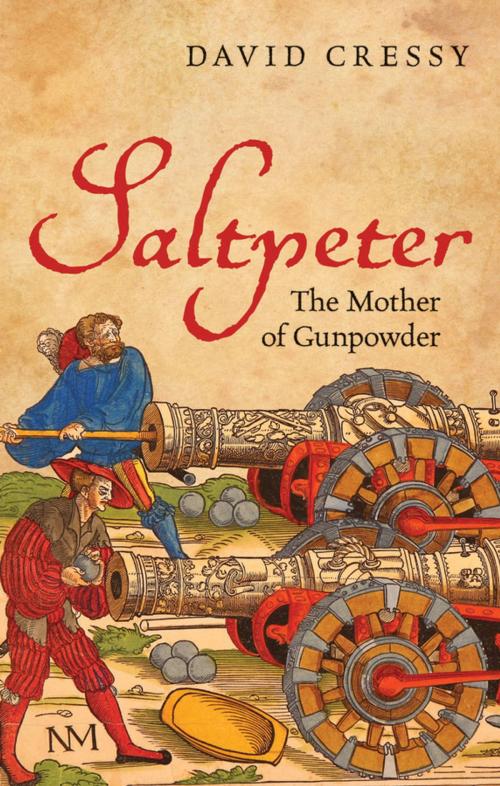| Author: | David Cressy | ISBN: | 9780191611865 |
| Publisher: | OUP Oxford | Publication: | January 10, 2013 |
| Imprint: | OUP Oxford | Language: | English |
| Author: | David Cressy |
| ISBN: | 9780191611865 |
| Publisher: | OUP Oxford |
| Publication: | January 10, 2013 |
| Imprint: | OUP Oxford |
| Language: | English |
This is the story of saltpeter, the vital but mysterious substance craved by governments from the Tudors to the Victorians as an 'inestimable treasure.' National security depended on control of this organic material - that had both mystical and mineral properties. Derived from soil enriched with dung and urine, it provided the heart or 'mother' of gunpowder, without which no musket or cannon could be fired. Its acquisition involved alchemical knowledge, exotic technology, intrusions into people's lives, and eventual dominance of the world's oceans. The quest for saltpeter caused widespread 'vexation' in Tudor and Stuart England, as crown agents dug in homes and barns and even churches. Governments hungry for it purchased supplies from overseas merchants, transferred skills from foreign experts, and extended patronage to ingenious schemers, while the hated 'saltpetermen' intruded on private ground. Eventually, huge saltpeter imports from India relieved this social pressure, and by the eighteenth century positioned Britain as a global imperial power; the governments of revolutionary America and ancien régime France, on the other hand, were forced to find alternative sources of this treasured substance. In the end, it was only with the development of chemical explosives in the late Victorian period that dependency on saltpeter finally declined. Saltpeter, the Mother of Gunpowder tells this fascinating story for the first time. Lively and entertaining in its own right, it is also a tale with far-reaching implications. As David Cressy's engaging narrative makes clear, the story of saltpeter is vital not only in explaining the inter-connected military, scientific, and political 'revolutions' of the seventeenth century; it also played a key role in the formation of the centralized British nation state - and that state's subsequent dominance of the waves in the eighteenth and nineteenth centuries.
This is the story of saltpeter, the vital but mysterious substance craved by governments from the Tudors to the Victorians as an 'inestimable treasure.' National security depended on control of this organic material - that had both mystical and mineral properties. Derived from soil enriched with dung and urine, it provided the heart or 'mother' of gunpowder, without which no musket or cannon could be fired. Its acquisition involved alchemical knowledge, exotic technology, intrusions into people's lives, and eventual dominance of the world's oceans. The quest for saltpeter caused widespread 'vexation' in Tudor and Stuart England, as crown agents dug in homes and barns and even churches. Governments hungry for it purchased supplies from overseas merchants, transferred skills from foreign experts, and extended patronage to ingenious schemers, while the hated 'saltpetermen' intruded on private ground. Eventually, huge saltpeter imports from India relieved this social pressure, and by the eighteenth century positioned Britain as a global imperial power; the governments of revolutionary America and ancien régime France, on the other hand, were forced to find alternative sources of this treasured substance. In the end, it was only with the development of chemical explosives in the late Victorian period that dependency on saltpeter finally declined. Saltpeter, the Mother of Gunpowder tells this fascinating story for the first time. Lively and entertaining in its own right, it is also a tale with far-reaching implications. As David Cressy's engaging narrative makes clear, the story of saltpeter is vital not only in explaining the inter-connected military, scientific, and political 'revolutions' of the seventeenth century; it also played a key role in the formation of the centralized British nation state - and that state's subsequent dominance of the waves in the eighteenth and nineteenth centuries.















